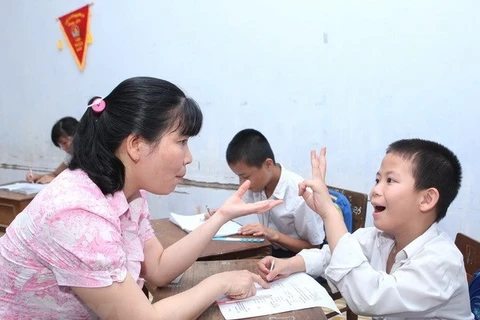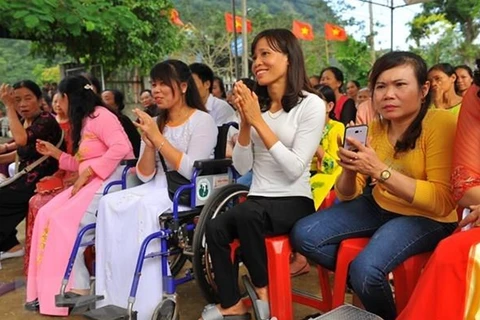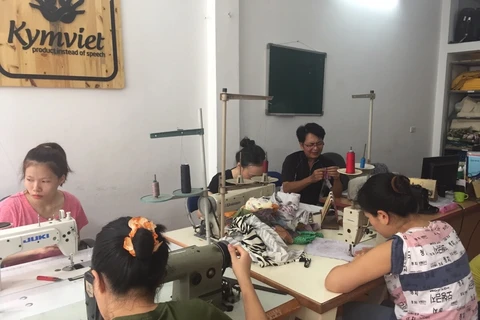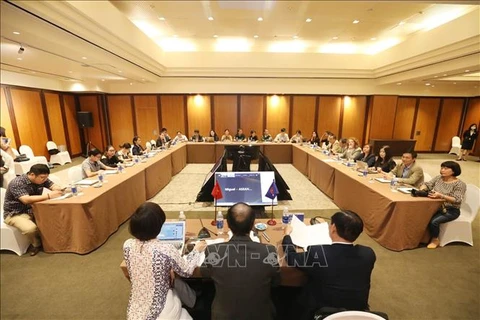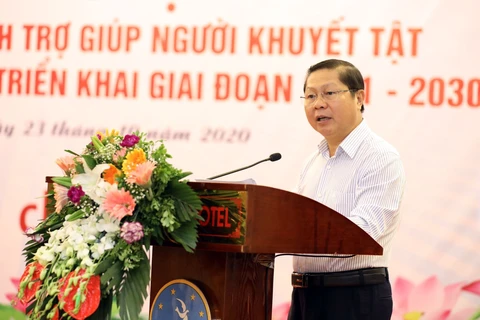 NGO HCM City Disabilities Research and Capacity Development Centre and the UNDP organise a forum on access to a smart HCM City for people with disabilities on October 26 (Photo: VNA)
NGO HCM City Disabilities Research and Capacity Development Centre and the UNDP organise a forum on access to a smart HCM City for people with disabilities on October 26 (Photo: VNA) HCM City (VNS/VNA) - The smart city which Ho Chi Minh City is converting into should be made accessible to people with disabilities, a forum heard in HCM City on October 26.
People with disabilities complain that many public sites in the city remain inaccessible to them. For instance, pavements at many places in the downtown area have iron railings, making it difficult for people in wheelchairs and those with visual impairment to walk through.
Difficulties in travelling around make people with disabilities reluctant to leave home, and many thus find it difficult to integrate into society.
Dr Vo Thi Hoang Yen, founder of the NGO HCM City Disabilities Research and Capacity Development Centre (DRD), said authorities should keep people with disabilities in mind when creating smart cities.
People with disabilities and organisations they are affiliated to could have suggestions that could be integrated into the city’s database for the smart city development, she said.
DRD has, for instance, developed a phone application called D-Map which helps people with disabilities know the locations of disabled-friendly community venues such as parks, coffee shops and public sites.
More than 15,000 public sites around the country are now shown in the app.
D.Map was developed with funding from the UNDP and the US Agency for International Development and initial technical assistance from Hoa Sen University.
Vu Chi Kien, head of the Department of Planning and Architecture’s Architectural Research Centre, said in the smart city project, cutting-edge technologies have been used to serve people including those with disabilities.
Lack of physical access to many public venues prevents people with disabilities from using public services, he said.
“This problem is addressed. In the smart city, they can access public services without directly going to public venues. They could use online administrative procedures.”
Yen suggested that more functions aiding people with disabilities should be integrated into the applications the city is using to develop the smart city.
Dao Thu Huong, a specialist on the rights of people with disabilities at UNDP Vietnam, said her agency is working with the DRD and the Ministry of Labour, Invalids and Social Affairs to amend laws to create provisions that allow new buildings to open only if approved by people with disabilities.
According to Yen, the additional cost of building public facilities to make them accessible to people with disabilities is 0-3 percent, but that goes up to 12 percent if they have to be altered after construction.
The ratio of people with disabilities is 5-10 percent of the country’s population, equivalent to 6.5 million people./.
VNA
